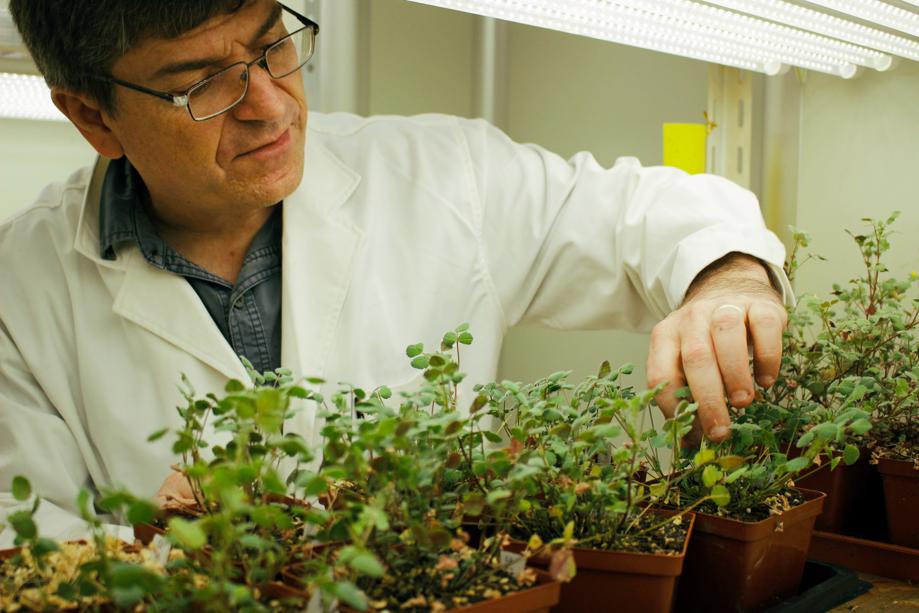
Jeremy Murray, a researcher from the Center for Excellence in Molecular Plant Science of the Chinese Academy of Sciences, works in a lab. [Photo provided to chinadaily.com.cn]
A study by a Shanghai-based research institute has revealed a central regulatory mechanism in legume nitrogen fixation, which provides a chance to improve nitrogen fixation in legumes and a theoretical basis to transfer nitrogen fixation in non-legumes plants, such as rice and maize.
The research results may help reduce the use of nitrogen fertilizer in agriculture, improve global food security, and protect the ecological environment, according to the scientists.
Legumes, the third largest family of plants, have a biological nitrogen fixation capability. However, nitrogen fixation is energy intensive and therefore requires a steady supply of oxygen, but nitrogenase needs to work in a very low oxygen environment.
To solve the "oxygen-paradox", the root nodule cells synthesize large amounts of proteins called leghemoglobin to balance and regulate oxygen concentration. However, the factors controlling the leghemoglobin production in root nodules remained unknown.
In this study by researchers at the Center for Excellence in Molecular Plant Science of the Chinese Academy of Sciences, they found that NLP2 and NIN, two members of the NLP (NIN-like Protein) family, activate leghemoglobin gene expression in root nodules by directly binding to two overlapping "nitrate response elements", and thus balance the oxygen microenvironment necessary for nitrogen fixation.
A paper about the research was published on the website of the United-States-based journal Science on Friday.
"As energy cost increases year-on-year, the production cost of nitrogen fertilizer is increasing accordingly. In addition, the overuse of nitrogen fertilizers is harmful to the environment," said Jeremy Murray, leading scientist for the research.
"Therefore, as a source of nitrogen fertilizer, biological nitrogen fixation is of great significance to the development of sustainable of agriculture," said Murray, a full-time researcher from Canada at the research center.